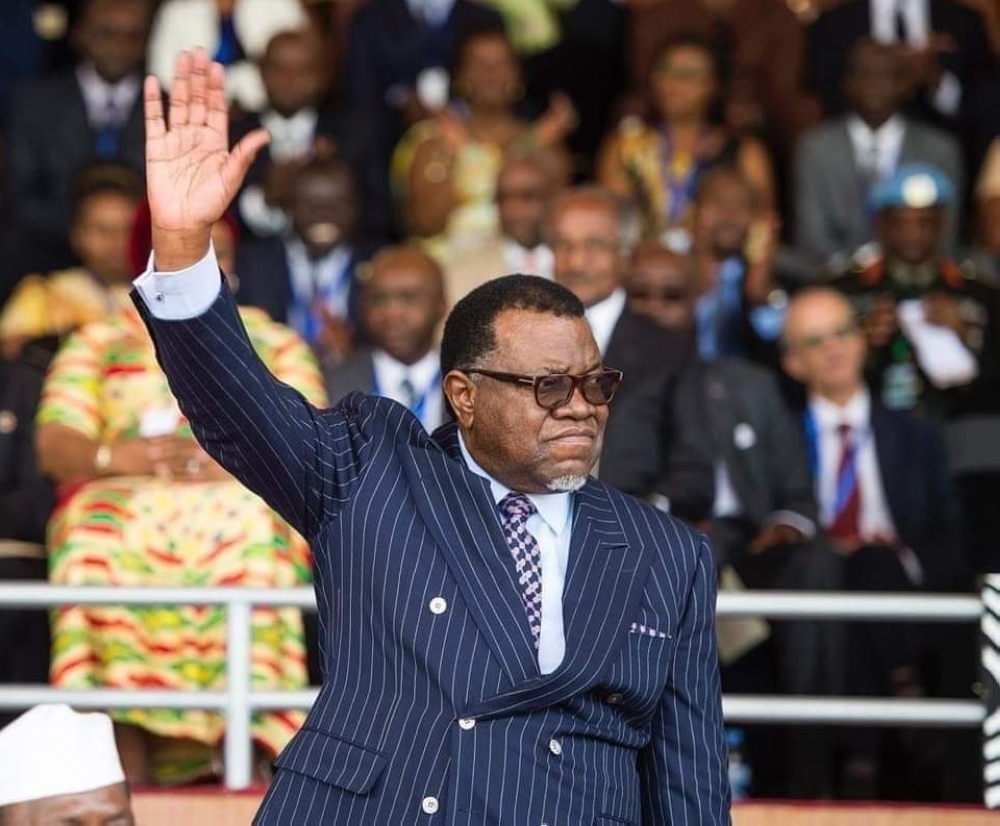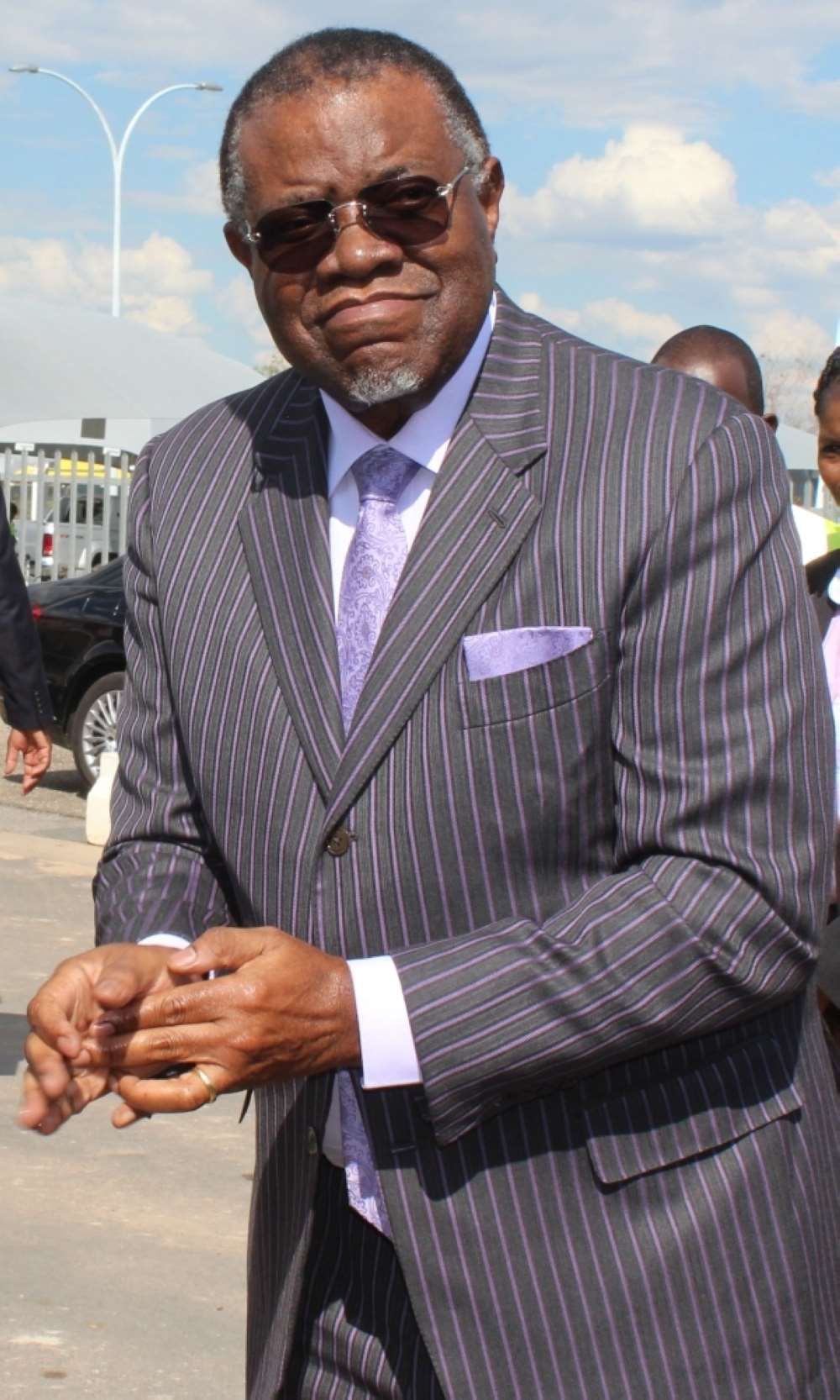Death of an icon
Dr. Hage Geingob dies aged 82
President Hage Geingob’s death has provoked mixed reactions from Namibians and political leaders around the world.
Geingob was both revered and reviled during his time as president, but in death, Namibians have united to mourn their leader. He was the chief architect of the Namibian Constitution after chairing the Constituent Assembly, which crafted the country’s primary legal instrument.
Namibians woke up on Sunday, 4 February, to the news of Geingob’s death following a battle with cancer. Since then, the mood across the country has been sombre, with messages of condolence pouring in from all over the world. Geingob has largely been praised for broadening transparency and accountability within government ranks, especially after declaring his assets when he became president.
Most of his life has been dedicated to public service. From playing a crucial role in delivering Namibia’s independence to holding public office in post-independent Namibia for more than three decades, his contribution to Namibia’s vibrant democracy is self-evident.
Smooth transition
Nangolo Mbumba, Namibia's former vice-president, was on Sunday afternoon sworn in as the new president - until the next elections, as stipulated by the Namibian Constitution.
At his inauguration, he emphasised that he is merely fulfilling his duty as stipulated in the constitution, which requires him, as right-hand man, to finish Geingob’s term. “I am not going to be around for the elections, so don’t panic if you are already telling yourself stories. I will be serving you for the remainder of Geingob’s term of office. Let us understand and support one another,” he said.
At the same occasion, Mbumba appointed Netumbo Nandi-Ndaitwah, the former minister of international relations and deputy prime minister, as vice-president.
Looking back
Born on 3 August 1941 in Otjiwarongo, Geingob's early years were marked by protests against an unjust education system during the apartheid era, leading to his expulsion from Augustineum Training College in 1960.
He then left Namibia for the United States for studies and later served as Namibia's representative at the United Nations, playing a significant role in mobilising international support for Swapo. He returned to his motherland in 1989, when Swapo won the country’s first elections, leading to its independence from South Africa’s apartheid government.
Legacy
Throughout his political career, Geingob held key positions - including prime minister and minister of trade and industry - and in 2014, he was elected as Namibia's president, securing a second term in 2019 - despite being implicated in the Fishrot bribery scandal.
According to analysts, Geingob leaves behind a mixed legacy – that of a beloved individual and a president who will be remembered for skyrocketing unemployment and an economy in tatters. Political analyst Ndumba Kamwanyah said Geingob "will be remembered as a towering figure of Namibia’s liberation struggle and someone who pressed the issue of Namibia's independence at the United Nations”.
Geingob was both revered and reviled during his time as president, but in death, Namibians have united to mourn their leader. He was the chief architect of the Namibian Constitution after chairing the Constituent Assembly, which crafted the country’s primary legal instrument.
Namibians woke up on Sunday, 4 February, to the news of Geingob’s death following a battle with cancer. Since then, the mood across the country has been sombre, with messages of condolence pouring in from all over the world. Geingob has largely been praised for broadening transparency and accountability within government ranks, especially after declaring his assets when he became president.
Most of his life has been dedicated to public service. From playing a crucial role in delivering Namibia’s independence to holding public office in post-independent Namibia for more than three decades, his contribution to Namibia’s vibrant democracy is self-evident.
Smooth transition
Nangolo Mbumba, Namibia's former vice-president, was on Sunday afternoon sworn in as the new president - until the next elections, as stipulated by the Namibian Constitution.
At his inauguration, he emphasised that he is merely fulfilling his duty as stipulated in the constitution, which requires him, as right-hand man, to finish Geingob’s term. “I am not going to be around for the elections, so don’t panic if you are already telling yourself stories. I will be serving you for the remainder of Geingob’s term of office. Let us understand and support one another,” he said.
At the same occasion, Mbumba appointed Netumbo Nandi-Ndaitwah, the former minister of international relations and deputy prime minister, as vice-president.
Looking back
Born on 3 August 1941 in Otjiwarongo, Geingob's early years were marked by protests against an unjust education system during the apartheid era, leading to his expulsion from Augustineum Training College in 1960.
He then left Namibia for the United States for studies and later served as Namibia's representative at the United Nations, playing a significant role in mobilising international support for Swapo. He returned to his motherland in 1989, when Swapo won the country’s first elections, leading to its independence from South Africa’s apartheid government.
Legacy
Throughout his political career, Geingob held key positions - including prime minister and minister of trade and industry - and in 2014, he was elected as Namibia's president, securing a second term in 2019 - despite being implicated in the Fishrot bribery scandal.
According to analysts, Geingob leaves behind a mixed legacy – that of a beloved individual and a president who will be remembered for skyrocketing unemployment and an economy in tatters. Political analyst Ndumba Kamwanyah said Geingob "will be remembered as a towering figure of Namibia’s liberation struggle and someone who pressed the issue of Namibia's independence at the United Nations”.








Kommentar
Allgemeine Zeitung
Zu diesem Artikel wurden keine Kommentare hinterlassen